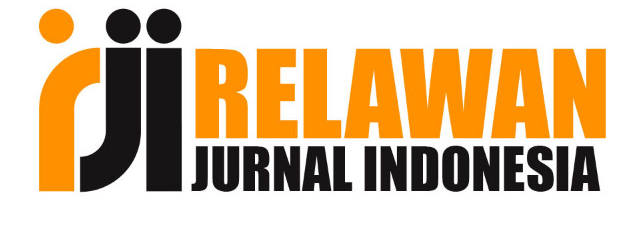Bagaimana Pemerintah daerah merespon Fiscal Stress?
DOI:
https://doi.org/10.36982/jiegmk.v10i2.840Abstrak
ABSTRACT
This study aims to find out and analyze how the response of the regency/municipality to the occurrence of fiscal stress, which is the inability of local governments to generate sufficient income in the current period to meet their expenditure. This study used descriptive qualitative approach to explore primary data information.. This study used Yogyakarta municipality and Surakarta municipality as research sample, the author conducted interviews with related parties for data collection. The results of this study found that the character of local government entities is an important factor in how the region responds to fiscal stress. Regional Original Income has significant influence on fiscal stress, high or low Regional Original Income will affect the confidence of the region in allocating the budget that will be used for public services. The higher the ability of a region in optimizing local revenue, the smaller the impact of fiscal stress on the area, and vice versa. Another response from local governments to fiscal stress is to allocate appropriate Capital Expenditures in accordance with priorities, so that regional potential will increase and attract investors, so that it will grow the economy of the region, and in the end it is expected to increase regional income in the future. In addition to avoiding fiscal stress, the regional government allocates capital expenditures from Special Allocation Funds (DAK), so that these funds if its increase or decrease have little effect on the fiscal stress, because the capital expenditure funding comes from central government transfer funds.
Keywords :Â Fiscal Stress, Response, Yogyakarta, SurakartaABSTRAK
Penelitian ini bertujuan untuk mengetahui dan menganalisis bagaimana respon pemerintah kabupaten/kota terhadap terjadinya fiscal stress yang merupakan ketidakmampuan pemerintah daerah untuk menghasilkan pendapatan yang cukup dalam jangka waktu saat ini untuk memenuhi pengeluarannya. Penelitian ini menggunakan pendekatan kualitatif deskriptif dengan mencoba menggali informasi data primer ke narasumber. Penelitian ini menggunakan kota yogyakarta dan kota surakarta sebagai sampel penelitian, dan penulis melakukan wawancana ke pihak terkait untuk pengumpulan data. Hasil dari penelitian ini menemukan bahwa karakter entitas pemerintah daerah adalah faktor penting bagaimana daerah tersebut merespon terjadinya fiscal stress. Pendapatan Asli Daerah memiliki pengaruh yang signifikan terhadap fiscal stress, tinggi atau rendahnya Pendapatan Asli Daerah akan mempengaruhi kepercayaan diri daerah tersebut dalam mengalokasikan anggaran belanja yang akan digunakan untuk pelayanan publik. Semakin tinggi kemampuan suatu daerah dalam mengoptimalkan pendapatan asli daerah, semakin kecil pula dampak fiscal stress pada daerah tersebut, begitu sebaliknya. Respons lain dari pemerintah daerah terhadap fiskal stress adalah dengan mengalokasikan Belanja Modal yang sesuai sesuai dengan prioritas, sehingga potensi daerah akan meningkat dan menarik investor, sehingga pada akhirnya akan menumbuhkan perekonomian daerah tersebut, dan pada akhirnya diharapkan akan meningkatkan pendapatan daerah di masa yang akan datang. Selain itu untuk menghindari fiscal stress pemerintah daerah mengalokasikan belanja modal berasal dari Dana Alokasi Khusus (DAK), sehingga dana ini apabila mengalami kenaikan atau penurunan tidak terlalu berpengaruh terhadap tingkat fiscal stress daerah tersebut, karena pembiayaan belanja modal tersebut berasal dari dana transfer pemerintah pusat.
Kata kunci :Â Fiscal Stress, Respon, Yogyakarta, Surakarta
Referensi
Adi, P. H. 2007. Kemampuan Keuangan Daerah dan Relevansinya dengan Pertumbuhan Ekonomi. The 1st National Accounting Conference, (Departemen Akuntansi, Fakultas Ekonomi Universitas Indonesia. Jakarta.).
Burchell, Robert W., David Listokin, George Sternlieb, James W. Hughes, and S. C. C. 1981. Measuring Urban Distress: A Summary of The Major Urban Hardship Indices and Resource Allocation Systems. In Cities Under Stress: The Fiscal Crises of Urban America ( by R. W. B. and D. Listokin, Ed.). New Brunswick: NJ: Center for Urban Policy Research.
Dinapoli, T. 2016. Fiscal Stress Monitoring System. Office of the New York State: Comptroller.
Firstanto, R. 2015. Analisis Pengaruh Pertumbuhan Pad, Pdrb, Dan Belanja Modal Terhadap Fiscal Stress
Pada Kabupaten Dan Kota Di Provinsi Jawa
Tengah. Universitas Diponegoro.
Hevesi, A. G. 2006. Analysis of Fiscal Stress in New
York State ’ s Cities.
Jimenez, B. S. 2010. Fiscal Stress and the Allocation of
Expenditure Responsibilities between State and Local Governments: An Exploratory Study. State and Local Government Review, 41(2), 81–94. https://doi.org/10.1177/0160323x0904100202
Menchik, P. L. 2002. Demographic Change and Fiscal Stress on States: The Case of Michigan. Applied Public Policy Research Program. Lansing: Michigan State University Institute for Public Policy and Social Research.
Muda, I. 2012. Variabel Yang Mempengaruhi Fiscal Stress Pada Kabupaten/Kota Sumatera Utara. Jurnal Keuangan & Bisnis, 4(1).
Pammer, W. J. 1990. Managing Fiscal Strain in Major American Cities: Understanding Retrenchment in the Public Sector. New York: Greenwood Press.
Patton, Terry K., and A. K. 2003. Financial Analysis of the City of Mesquite Falls, Texas, Using Comprehensive Annual Financial Reports. In Case Studies in Public Budgeting and Financial Management. New York: Marcel Dekker Inc.
Reschovsky, A. 2003. The Implication of State Fiscal Stress for Local Governments. Urban Institute Conference, State Fiscal Crises: Causes, Consequences, &Solutions., 53706 (April). Retrieved from http://taxpolicycenter.org/UploadedPDF/1000612.p df
Savage, J. D. 1992. California’s Structural Deficit Crisis. Public Budgeting & Finance Summer:82-97.
Shamsub, H., & Akoto, J. B. 2004. State and local fiscal structures and fiscal stress. Journal of Public Budgeting, Accounting & Financial Management, 16(1), 40–61. https://doi.org/10.1108/jpbafm-16- 01-2004-b003
Unduhan
Diterbitkan
Cara Mengutip
Terbitan
Bagian
Lisensi
Authors retain copyright and grant the journal right of first publication with the work simultaneously licensed under a Creative Commons Attribution License that allows others to share the work with an acknowledgement of the work's authorship and initial publication in this journal.
Â
Authors are permitted and encouraged to post their work online (e.g., in institutional repositories or on their website) prior to and during the submission process, as it can lead to productive exchanges, as well as earlier and greater citation of published work.
Â
LP2M Indo Global Mandiri University has the right to multiply and distribute the article and every author is not allowed to publish the same article that has been published in this journal.










